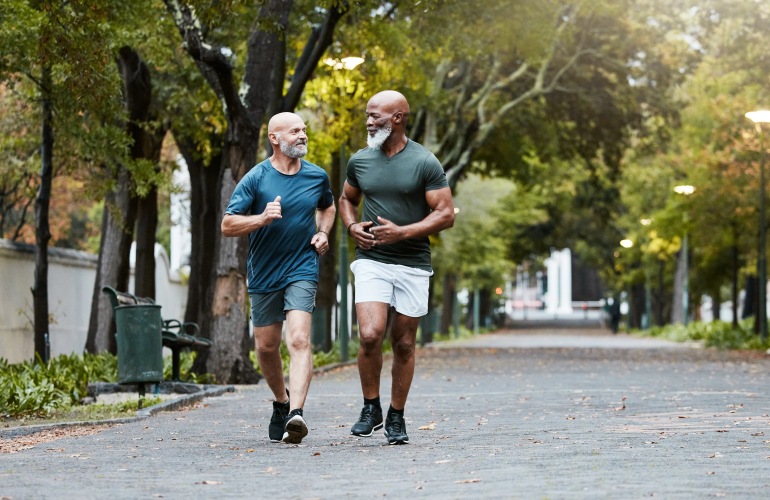The best antidote to loneliness is socializing. Contact local mental health services for older adults and ask about community activities and social events. Talk to family members, and ask them to drop by and have a chat. Ring up that old friend or meet new ones.
One of the best ways to combat loneliness is to live in a community of people your age. Adult active living communities have much lower rates of loneliness than the general community. Active living communities help build new relationships and friendships for seniors who have lost family and friends to time. Additionally, Overture's robust and lively social calendars offer many social engagements on a weekly basis - craft classes, guided walks or strolls with a neighbor, community celebrations, happy hours, and more!
Exercise Your Mind
The mind isn't a muscle, but it works best when exercised. Playing puzzle games, journaling, learning a new language, reading, taking courses on subjects that interest you, and starting a new hobby give your mind something to do. Many of these activities also provide opportunities to meet other people, so you get to socialize as well.
Exercise Your Body
Regular exercise helps seniors maintain muscle tone and reduces the risk of falls. Starting active as we age is also good for our physical health, as it helps manage stress and reduces anxiety. As with many mental activities, exercising often provides opportunities to socialize, further improving mental health in seniors. So if you ever wanted to learn to play pickleball or take up ballroom dancing, now’s a great time to start!
Don’t forget about the events calendar at your Overture community and scope out the instructor-led fitness classes! From yoga, pickleball, pool fitness, and dance classes, our communities offer an array of options to stay active!
Volunteer
A sense of purpose is vital to our mental health. After retirement, people who focus on their careers often lose their sense of purpose, which can impact mental health.
Volunteering helps you maintain a sense of purpose, and you have plenty to offer. You’ve got a lifetime of knowledge and skills non-profit organizations desperately need. The community benefits when seniors volunteer, and seniors reap the rewards of improved emotional and mental health.
Care for a Pet
Caring for a pet has enormous physical and mental health benefits. Dogs, cats, and other pets can reduce feelings of loneliness, provide purpose, and decrease blood pressure. Walking a dog or other pet helps you stay active and increases socialization as people stop to chat with you about your pet.
Mental Health Resources for Older Adults
Mental health for seniors is complex, and severe depression requires professional treatment. If you have persistent depression or anxiety, please seek professional help. You can access the following mental health services for older adults online:
- FindTreatment.gov helps find providers who specialize in mental illness and substance abuse disorders.
- The American Psychiatric Association Foundation assists in finding psychiatric help.
- American Psychological Association helps people find local psychologists and mental health therapists.
- Veterans can call the Veterans Crisis Line.
- The Eldercare Locator helps older adults find a wide range of assistive care.
If you experience thoughts of hurting yourself or of suicide, please either call 911 or the 988 Suicide & Crisis Lifeline. Mental health for seniors is essential, and impacts all aspects of life. Take care of your mental well-being as you age, and you’ll enjoy a long, happy retirement.

